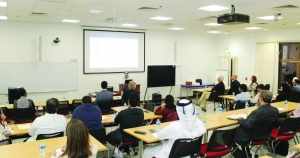As Covid deepens inequality, questions rise on whether technology can narrow the gap
- Date: 11-Jun-2021
- Source: CNBC
- Sector:Healthcare
- Country:Middle East
As Covid deepens inequality, questions rise on whether technology can narrow the gap
The global pandemic has aggravated existing inequalities around the world, and triggered questions about whether technology can help level the playing field. As a leading hub for cutting edge technology and innovation, Asia faces the same debate: Can technology work for all? Developing economies are more vulnerable to the inequities of access that exist in technologies like artificial intelligence, according to Kay Firth-Butterfield, head of AI and machine learning, at the World Economic Forum (WEF). "That's partly because we don't have sufficient data, because it's simply not being created," she told during a special episode of CNBC's The Edge. "We need data to train the models and we need that data to not be prejudiced," she said, adding that developers need to come from those same emerging economies. "There's also a problem that so many people don't have internet and don't have access to the tools of AI. So these developing economies are being prejudiced because they can't access AI, and the benefits from it," she added. Debiasing A.I. Despite its enormous potential, AI faces several challenges. It has been widely criticized for perpetuating inequalities due to its inherent biases. For instance, Firth-Butterfield pointed out that most of the developers























